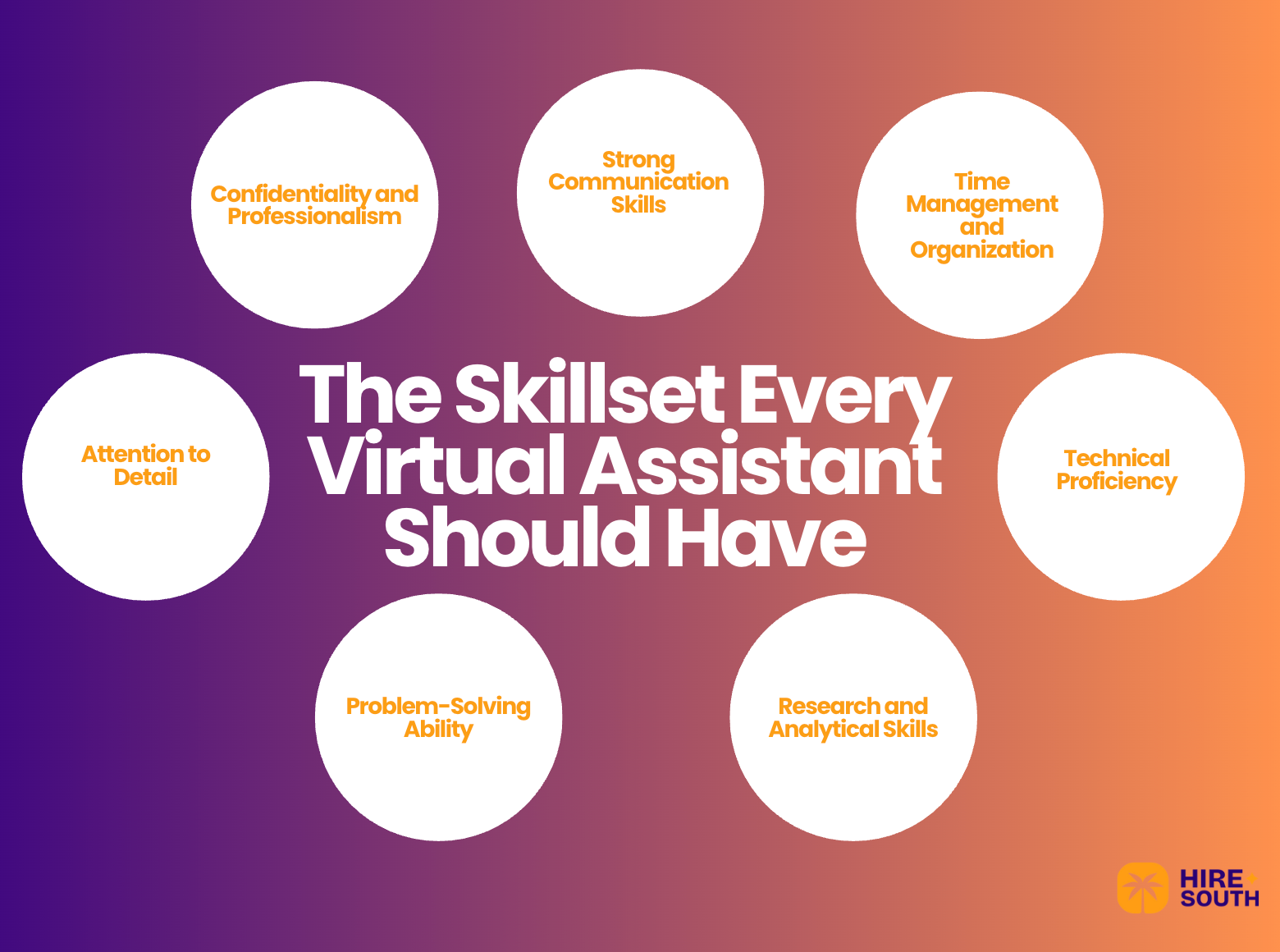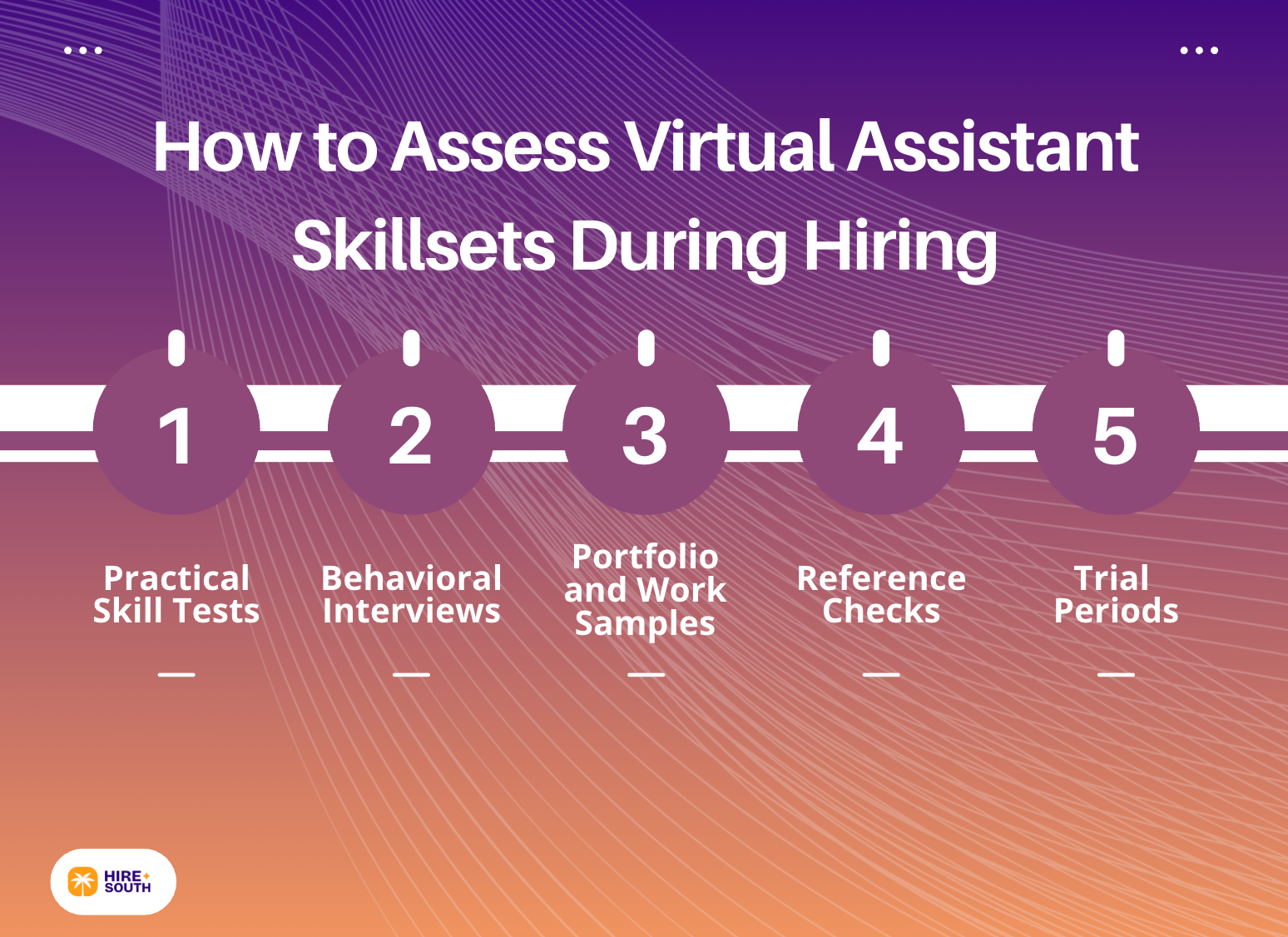Hiring a virtual assistant is no longer just about offloading admin work. Today’s business leaders seek professionals who possess a well-rounded combination of technical expertise, organizational skills, and the right soft skills to support growth. And Latin America has become one of the fastest-growing regions for this kind of talent.
A recent study by Statista found that the global virtual assistant market is projected to surpass $26 billion by 2027, underscoring the growing importance of these roles in modern operations. For companies tapping into LATAM, the mix of cultural compatibility, bilingual ability, and cost efficiency makes it an especially attractive hiring destination.
This article breaks down the essential and top skills you should look for when hiring virtual assistants in Latin America. You’ll see the hard skills every assistant needs, the specialized abilities that make LATAM talent stand out, and the soft skills that separate the best from the rest.
How Companies Can Benefit From Virtual Assistants
Reduced Operating Costs.
Virtual assistants allow you to scale without committing to full-time salaries and benefits. According to Deloitte’s Global Outsourcing Survey, 59% of businesses outsource to cut costs, and VAs fit directly into that strategy. By hiring talent from Latin America, you also benefit from lower regional wage averages compared to North America or Europe, while still maintaining high-quality support.
Access to Specialized Skills.
Many VAs bring expertise beyond basic admin. From CRM management and bookkeeping to bilingual customer service, you can fill skill gaps without hiring multiple employees. This flexibility helps you tap into niche skills when you need them, especially in competitive markets where specialized roles are costly to hire locally.
Increased Productivity and Focus.
Delegating routine but essential tasks frees up your core team to concentrate on revenue-generating activities. Harvard Business Review reports that knowledge workers spend 41% of their time on tasks that could be handled by others. Offloading those responsibilities to a virtual assistant ensures your business leaders stay focused on strategic priorities.
Enhanced Customer Experience.
With customer expectations at an all-time high, having a VA who manages inquiries promptly and professionally can improve response times and client satisfaction. LATAM virtual assistants, in particular, often bring bilingual capabilities, making it easier to serve diverse markets across North and South America without friction.
Greater Flexibility and Scalability.
Workloads fluctuate, and VAs provide the ability to scale support up or down as your business needs evolve. Unlike traditional hiring, contracts with virtual assistants can be more agile, which helps companies adapt quickly during seasonal peaks or periods of growth without the overhead of permanent staff.
Global Competitiveness.
By leveraging VAs, companies can maintain around-the-clock operations across time zones. This 24/7 availability can give your business an edge in international markets, where speed of service and responsiveness directly impact competitiveness. Latin America’s proximity to US business hours also minimizes communication delays, improving workflow efficiency.
The Skillset Every Virtual Assistant Should Have

1. Strong Communication Skills:
Clear communication is the foundation of virtual collaboration. A VA should be able to write professional emails, take concise meeting notes, and manage client interactions with clarity. According to McKinsey, effective communication can boost team productivity by up to 25% when digital collaboration is well-managed.
2. Time Management and Organization:
Virtual assistants often juggle multiple clients or departments. That makes scheduling, task prioritization, and deadline tracking critical. The ability to use tools like Google Calendar, Trello, or Asana ensures that nothing falls through the cracks, keeping business operations smooth and predictable.
3. Technical Proficiency:
A modern VA must be comfortable navigating a wide range of software. From spreadsheets and CRMs to video conferencing tools, technical adaptability saves you from costly delays. Gartner reports that companies using digital workplace tools see an 18% increase in employee performance, which underscores why tech-savvy assistants add real value.
4. Research and Analytical Skills:
Whether it’s gathering market data, creating competitor summaries, or identifying new leads, research is a core responsibility. A skilled VA should not only find reliable information but also present it in a way that supports informed decision-making. This transforms basic research into actionable business intelligence.
5. Attention to Detail:
Errors in data entry, scheduling, or communications can create unnecessary setbacks. An effective VA has the discipline to double-check work, maintain accuracy, and ensure consistency across tasks. Attention to detail builds trust and reduces the risk of operational mistakes.
6. Problem-Solving Ability:
Virtual assistants are often the first line of response when small issues arise. The ability to think critically, troubleshoot quickly, and resolve minor challenges independently reduces the burden on executives and managers. This self-sufficiency makes operations more efficient and less dependent on constant oversight.
7. Confidentiality and Professionalism:
Since VAs often handle sensitive information, trustworthiness is non-negotiable. A professional assistant respects privacy, adheres to security protocols, and manages data responsibly. For many companies, this reliability is just as important as technical skill.
The Soft Skills That Differentiate Top Virtual Assistants
Proactive Mindset:
Top-performing virtual assistants don’t just wait for instructions. They anticipate needs, identify potential issues before they escalate, and suggest improvements. Research from Gallup shows that employees who take initiative contribute to 21% higher profitability in organizations, which highlights the value of proactivity in support roles.
Emotional Intelligence:
Managing relationships virtually requires empathy and awareness. A VA with strong emotional intelligence can adapt tone in written communication, handle stressful situations calmly, and maintain professional rapport across cultures. This skill is crucial in roles that involve client-facing responsibilities or frequent team interaction.
Adaptability and Resilience:
Business environments change quickly, and virtual assistants often need to shift priorities without losing focus. Adaptability ensures that projects continue smoothly even when unexpected challenges arise. Studies from the World Economic Forum list adaptability as one of the top 10 skills for the future of work, proving its long-term importance.
Confidentiality and Integrity:
Trust is essential when delegating tasks that involve sensitive data. A VA should demonstrate discretion, follow security protocols, and handle confidential information with professionalism. Integrity not only protects your business but also strengthens long-term working relationships.
Cultural Awareness:
For companies hiring in Latin America, cross-cultural understanding plays a major role in seamless collaboration. A culturally aware assistant bridges communication gaps, avoids misunderstandings, and works effectively with international teams. This skill is especially relevant in businesses that rely on bilingual or multinational client bases.
Reliability and Consistency:
Consistency builds confidence in a virtual assistant’s work. Delivering tasks on time, maintaining high-quality output, and staying dependable under pressure make them indispensable to operations. According to a PwC workforce survey, 72% of executives rank dependability as a top factor in team performance, reinforcing why reliability is a differentiator.
How to Assess Virtual Assistant Skillsets During Hiring

1. Practical Skill Tests:
One of the most reliable ways to evaluate a virtual assistant is through hands-on assessments. Assign short tasks that mirror real responsibilities, such as drafting an email, organizing a calendar, or compiling research into a concise report. According to SHRM, 76% of organizations use skills assessments during recruitment because they provide measurable insights into performance.
2. Behavioral Interviews:
Past behavior often predicts future performance. Use scenario-based questions to gauge how a VA would respond to pressure, multitasking, or unexpected changes. For example, ask how they handle overlapping deadlines or an urgent request from a client. Their answers reveal critical thinking, adaptability, and communication style.
3. Portfolio and Work Samples:
Reviewing previous work gives you direct evidence of capabilities. Look for well-structured documents, error-free communication, and examples of tools they’ve mastered. A strong portfolio reflects attention to detail and consistency, qualities essential for high-performing virtual assistants.
4. Reference Checks:
References remain a key part of the hiring process. Speaking with past employers or clients can confirm reliability, professionalism, and overall skill level. A CareerBuilder survey found that 70% of employers use reference checks to screen candidates, showing their continued relevance in validating competencies.
5. Trial Periods:
For longer-term roles, consider offering a short paid trial. This approach lets you observe how the VA manages real workloads, interacts with your team, and adapts to workflows. A trial reduces risk while giving both sides a chance to evaluate fit before making a final commitment.
Ready to Hire Virtual Assistants in Latin America?
Finding a virtual assistant with the right mix of technical and soft skills can transform how efficiently your business operates. Studies show that delegating administrative work to skilled support professionals can save executives up to 20% of their workweek, according to Harvard Business Review, freeing time for higher-value decision-making.
At Hire South, we specialize in connecting companies with top talent across Latin America who bring both the essential skills and the regional advantages businesses look for. Our team ensures you gain reliable professionals, including virtual assistants, who enhance productivity, improve workflows, and adapt seamlessly to your operations. If you want to find the ideal talent for your company, schedule a free strategy call!

Ready to Hire LATAM Talent?
Let us do the legwork to find your perfect remote hire in Latin America!







.svg)